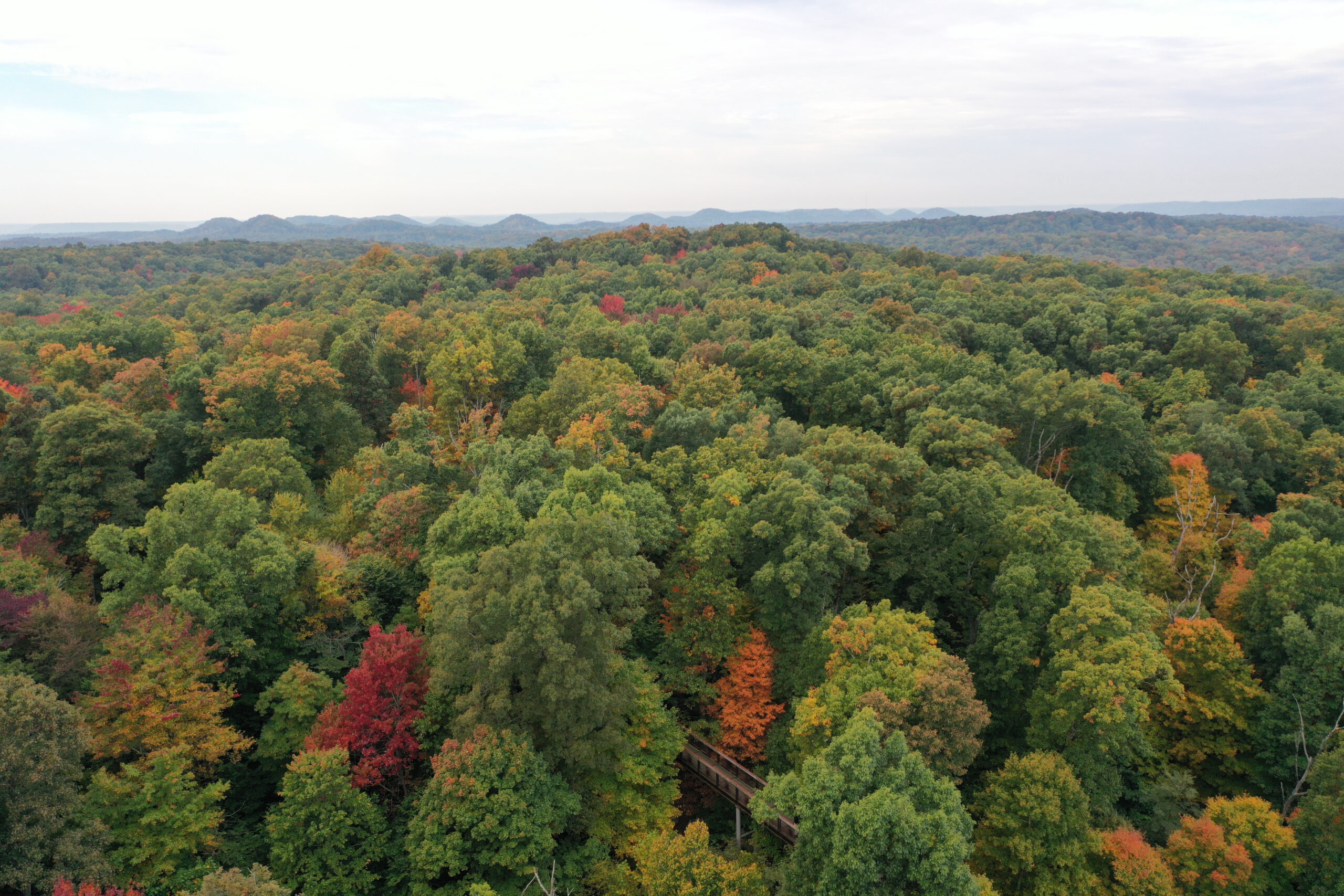By Mark Wourms
Donate to Support Bernheim’s Efforts to Stop the Pipeline >>
Bernheim is looking past the recent ruling by the Bullitt County Circuit Court that ruled in favor of LG&E and the proposed Bullitt County Pipeline. We will continue the fight to protect natural places and ecosystems that provide clean water, air, carbon sequestration, and rich biodiversity. Bernheim is a critical part of our local ecosystem that is fundamental to healthy communities and sustainable economies for all people. Without resilient and connected natural areas we cannot succeed as a society in the 21st century, and Bernheim cannot succeed in our mission of connecting people with nature.
Four years ago, Bernheim informed LG&E, a PPL subsidiary, that we would not grant an easement for a natural gas pipeline on Bernheim’s land within the Cedar Grove Wildlife Corridor for moral and legal reasons. Simply stated, Bernheim is legally required to defend taking of land for the proposed natural gas pipeline which required breaking a conservation easement. Bernheim is morally opposed to the pipeline because of its long-term impacts to land and water. The construction would destroy habitat for several endangered bat species, including federally protected Indiana bat and northern long-eared bat, and would destroy critical habitat for a rare population of the little-known bluff vertigo snail. Additionally, the pipeline would pump hydrocarbons across Bernheim for at least the next 70 years, exacerbating the global climate crisis.
Unfortunately, after four years of legal challenges the Bullitt County Circuit Court judge has ruled that under the eminent domain law, LG&E is able to take Bernheim’s conservation land. This will impose a permanent right-of-way for the LG&E pipeline. The procedural regulations and many laws in Kentucky (and many other states) are written to greatly favor extractive industries and highway projects over the rights of private landowners.
Bernheim has not determined its next steps including a possible appeal. Other factors at play could delay or even stop this proposed pipeline, including a hope that Kentucky’s decision makers and officials realize that the climate crisis is real, as evidenced in the recent severe weather events including tornados, floods, and winds, and move quickly towards a more sustainable and renewable energy future. The US Fish and Wildlife Service (USFWS) is reviewing the biological survey procedures used on this land pertaining to endangered species such as the northern long-eared bat. Additionally, several other bat species that inhabit the Cedar Grove Wildlife Corridor may become federally endangered in the coming years, including the tricolored bat and little brown bat. The USFWS may consider future endangered species listings and finally find too much is being given up for this for-profit pipeline project. They may also understand the threat to rock outcrops and springs that harbor rare and overlooked species of snails. Another outstanding issue is that the Army Corps of Engineers is awaiting a new interpretation of the Clean Water Act and its definition of navigable waters and associated negative impacts to those waters. The proposed pipeline would cross several clean streams and destroy several springs that provide clean limestone filtered water as a source for those streams.
Finally, there is a growing public outcry over this pipeline and the rising estimates of construction costs. When secretly approved by the Public Service Commission, the proposed pipeline had an estimated $25 million cost. Cost estimates have now risen to over $75 million, which rate payers may be forced to pay without any input, including the mounting legal bills and engineering costs! These costs may be carried by rate payers that will not see a benefit from this pipeline. It is possible that the Public Service Commission will ultimately decide the cost-benefit ratio for this pipeline and major end-users do not serve the greater public, as shown in testimony, and revoke the Certificate of Public Convenience and Necessity for this pipeline.
Bernheim continues to provide amazing programs in education, sustainability, horticulture, art, environmental research and so much more for the community. Natural land protection and mitigating the affects of the climate crisis is good for the environment, the economy, ourselves, and for future generations. This is not just an issue of digging a trench and dropping in a pipe, it is about providing a healthy, resilient, connected, and sustainable future for all.
Donate to Support Bernheim’s Efforts to Stop the Pipeline >>

